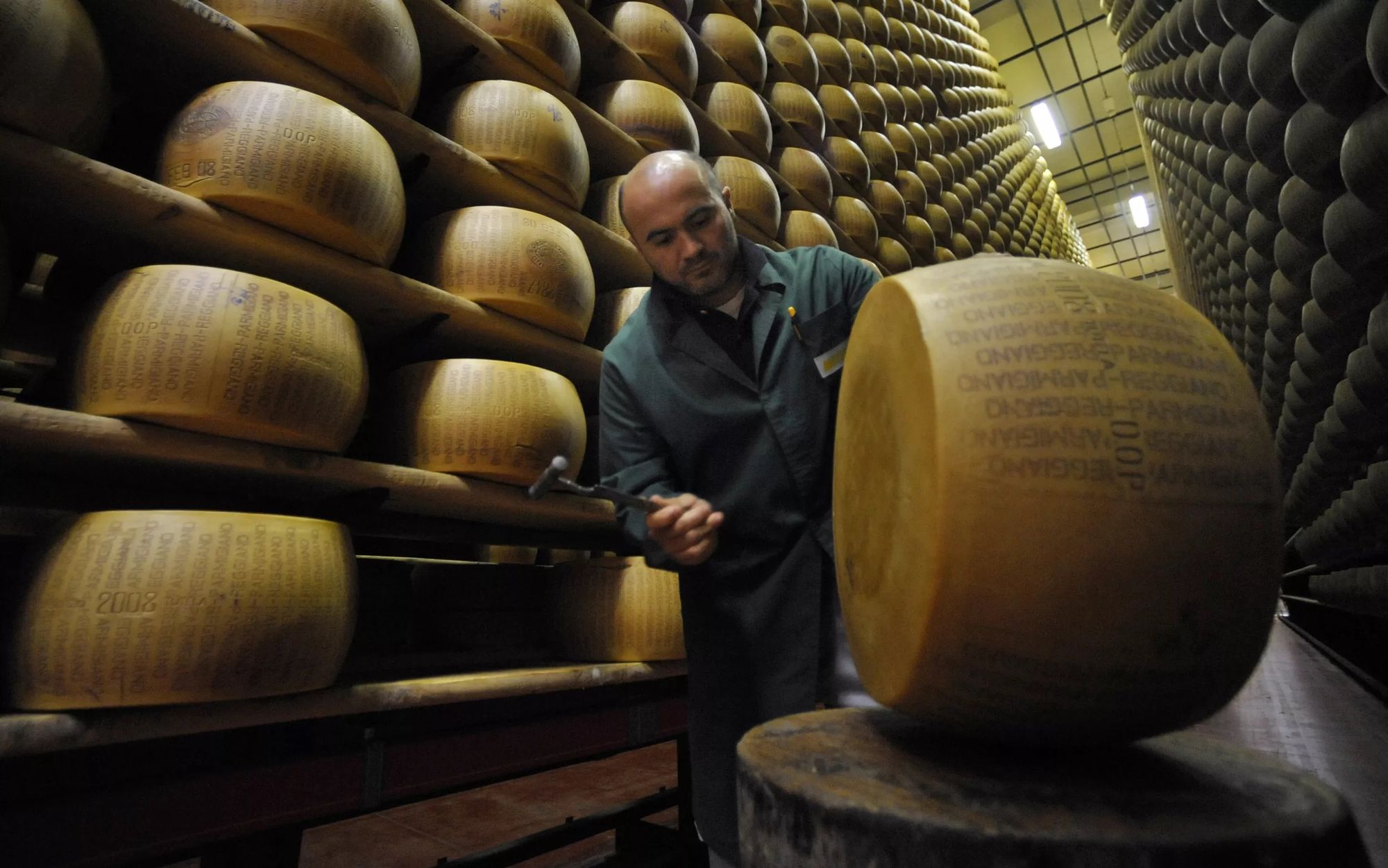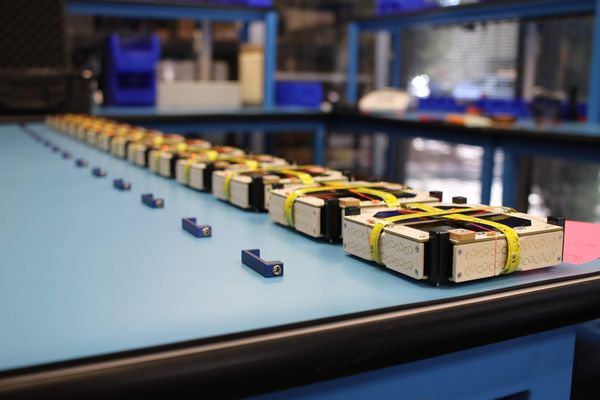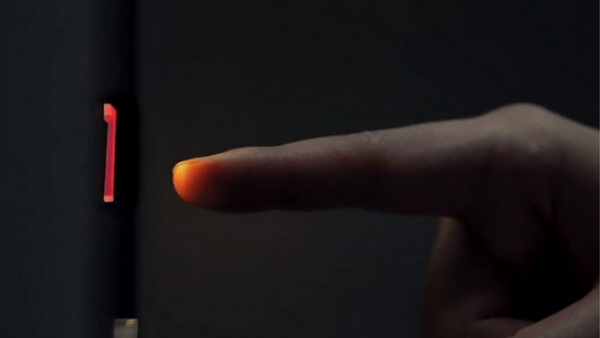In a story that sounds like it’s straight out of Tom and Jerry, Italian Parmigiano Reggiano cheesemakers are embedding tiny tracking chips into their cheese wheels' rinds to certify their authenticity and thwart shady competitors who falsely claim to produce real parmesan cheese.
Cheese Me if You Can: To tackle this cheese crime, the Parmigiano Reggiano Consortium, a trade union established in 1934, teamed up with p-Chips, a US-based company specializing in making “casein cheesemarks.” The chips are tiny transponders that generate a unique and scannable food tag for each parmesan wheel. Smaller than a grain of salt, these tags are food safe, and their data is stored on the blockchain (of course!), where it can easily be traced.
- The new chips are an upgrade over the tracking codes cheesemakers have been using for two decades. The Consortium plans on adding these smart tags to 100,000 parmesan wheels in the second quarter of 2022 alone. It will allow the cheesemakers to control their inventory better, protect and differentiate their products against counterfeit cheese and give them access to track-and-trace technology which can be particularly effective in cases like recalls.
Okay, but why?: In 2008, a European Union court passed a law stating that cheese can only be labeled and sold as "parmesan" if it is manufactured in Italy by Reggiano cheesemakers, just like how Champagne can technically only come from the Champagne region of France. Despite this law, the counterfeit parmesan market has grown into a multibillion-dollar industry that rivals the size of the real parmesan market, leaving Parmigiano Reggiano cheesemakers no choice but to evolve or fall.







